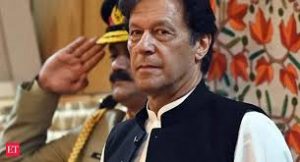
Imran Khan has clearly looked nervous since the Modi government recast Article 370 to scrap special status of Jammu and Kashmir. Pakistan has always intended to keep Kashmir Valley in troubled state so that it continues to serve as a buffer zone.
Kashmir is the first line of defence for Pakistan. This was a candid admission by Pakistan Prime Minister Imran Khan last week when he addressed a cabinet meeting over Kashmir. It was held in the backdrop of the Narendra Modi government’s move to scrap the special status of Jammu and Kashmir.
Imran Khan’s remark in the cabinet meeting on August 21 betrays Pakistan’s nervousness as the Modi government aims to achieve “full integration” of Jammu and Kashmir with the rest of India. This also explains why Pakistan has made fomenting trouble in Kashmir Valley its state policy.
Kashmir has been a buffer zone for Pakistan in its security strategic formulation. It has served Pakistan well in formulating its Kashmir policy. A separate rule of law in Jammu and Kashmir meant that information of Pakistan’s direct and sponsored activities on either side of the Line of Control in the state was problematic and not always smooth.
Pakistan’s deep state has infiltrated various levels of public life in Kashmir Valley and finds it easy to operate from its bases in Pakistan-occupied Kashmir. With local government coming under direct control of New Delhi would now mean all information would reach the central government directly.
The change in status of Jammu and Kashmir means that a better-coordinated security force would be on the LoC keeping a tighter vigil on Pakistan’s activities in Pakistan-occupied Kashmir including Gilgit-Baltistan.
With local political autonomy gone in the Kashmir Valley, Indian forces theoretically come much closer to the only significant development project – China Pakistan Economic Corridor — in the Pakistan-occupied Kashmir. Pakistan deliberately kept the region, under its control since 1947, undeveloped so that local populace of the region does not have any chance of communicating with the Indian side.
Leave a Reply